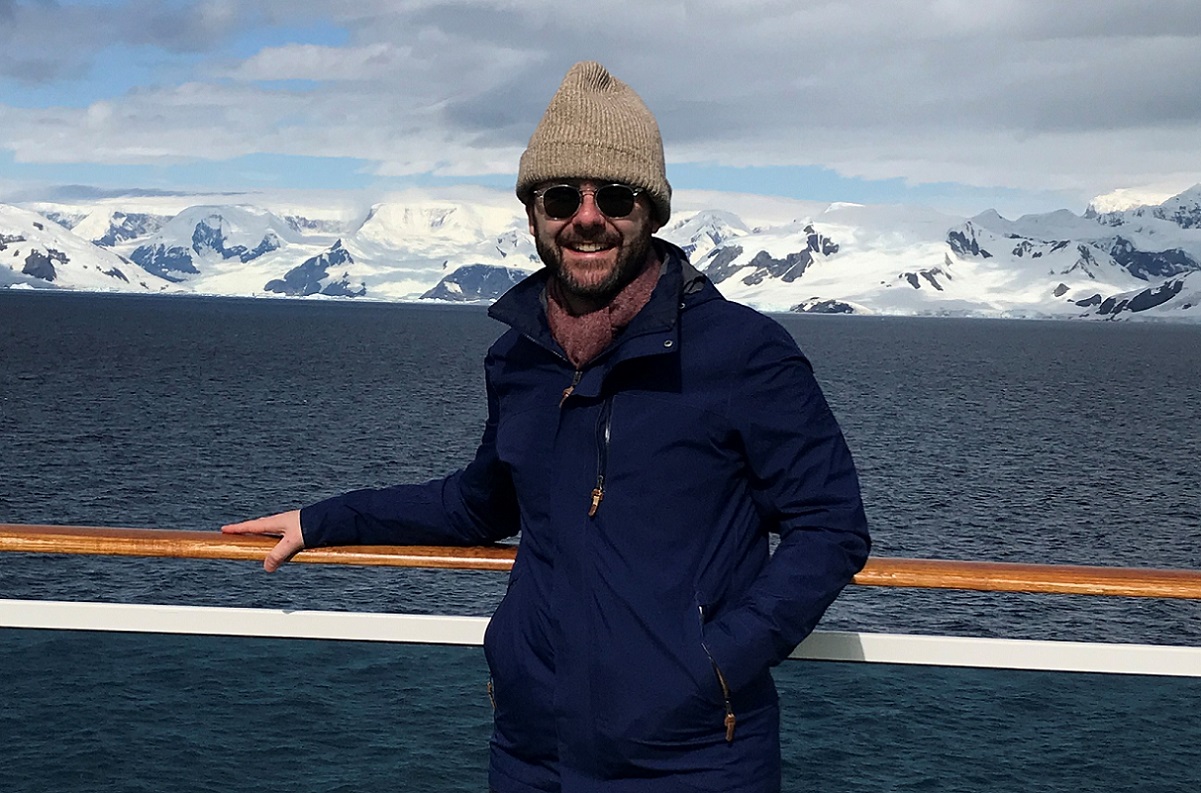
Understanding history is vital to shaping a better future. It can also demand more travel than many realise – an aspect Dr Alessandro Antonello enjoys, while appreciating the ability to progress his work at home when circumstances dictate.
What is your role and what does your research focus on?
I am a Senior Research Fellow in History in the College of Humanities, Arts and Social Sciences. My main research over the last few years has been on the environmental and diplomatic history of Antarctica and oceans since 1945.
I currently hold an Australian Research Council fellowship working on a history of the world’s oceans, especially looking into how environmental and scientific knowledge has been linked into the diplomatic and legal status of oceans globally since the end of the Second World War.
Can you describe the journey that took you to this point?
I’ve always been passionate about history and interested in the past, it’s so inspirational and full of fascinating stories. Our modern world has its origins in the past and we can shape the future, but only if we understand how the past has shaped the present.
I studied history at university, enjoying all the traditional social, cultural, and political aspects of the past. My work on environmental and Antarctic history came about by accident thanks to a wonderful mentor of mine who was working in those areas. I wondered, does Antarctica have a history? And what is environmental history? The answers brought to light the fact that, first, there is a rich human history in Antarctica, and secondly, that humans have a dynamic relationship with the environment that is deeply historical and that can be answered with the tools of historical research. And I’ve been interested in it ever since.
Can you describe a challenge in your life and how you dealt with it?
Like many others, I’m living it now!
Thankfully I’m healthy, but I started my role at Flinders University this year, with no family or friends in Adelaide and am finding it a challenge to meet people given the current circumstances. But, having said that, my colleagues are wonderful and have been really welcoming. We are all in this together and finding ways to stay connected.
What is something you are proud of?
I would say my book that I released last year based on my PhD – The Greening of Antarctica: Assembling an International Environment, with Oxford University Press. Putting 100,000 words between two covers is a long journey, it represented an exciting time travelling to lots of archives, meeting new colleagues, finding new information, but also frustrating in producing draft upon draft. Research is so fulfilling, but it takes time.
What does a normal day look like for you?
Being a historian does mean a lot of reading and writing, but it also involves a lot of field work. Many people assume archives are all digitised now but a large proportion are not, so you need to physically go to sites around the world and sift through many thousands of pages and documents. Today, historians generally take a lot of photos of the documents they’re studying so they can continue to consult them back at home.
The current situation with the COVID-19 pandemic means I’m spending much time reading over my notes and copies of historic documents I’ve taken over the past few years.
In more usual circumstances I do travel a bit for my research and the odd conference. When I’m doing field work I’ll be going to an archive somewhere in the world, enjoying a nice walk along the way, setting myself up in the reading room and sifting through old records taking notes and photographs of the documents for later when I’ll read through them again. And sometimes you even meet new colleagues when you’re taking a tea break and sharing stories of your work.
How do you like to relax or spend your spare time?
Thank god I’m in Adelaide, capital of food and wine, because I love to cook and share a meal or a drink with friends. I had a great time at this year’s Adelaide Festival and the Fringe. I’m also on the look-out for a good book club, since I love to read and talk about fiction from all around the world. I can recommend a book I recently devoured: Drive your plows over the bones of the dead by the Polish Nobel laureate Olga Tokarczuk.

